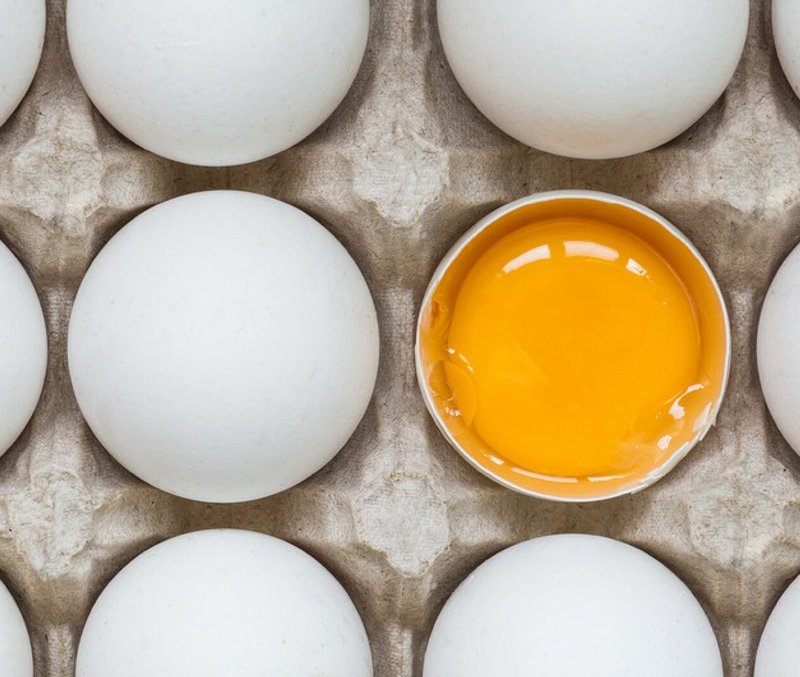
For several decades, eggs were believed to increase heart disease risk because of their high cholesterol content. It is true that eggs are high in cholesterol, but it is not that simple. In fact, they’re the major source of cholesterol in most people’s diets. Two large whole eggs (100 grams) contain about 422 mg of cholesterol. By contrast, 100 grams of 30% fat ground beef has only about 88 mg of cholesterol. Up until very recently, the recommended maximum daily intake of cholesterol was 300 mg per day. It was even lower for people with heart disease.
However, based on the latest research, health organizations in many countries no longer recommend restricting cholesterol intake. For the first time in decades, the US Dietary Guidelines released in January 2016 did not specify an upper daily limit for dietary cholesterol. Despite this change, many people remain concerned about consuming eggs.
This is because they’ve been conditioned to associate high dietary cholesterol intake with high blood cholesterol and heart disease. That being said, just because a food is high in cholesterol, it doesn’t necessarily raise cholesterol levels in the blood.
The Yolk Is High in Nutrients:
The egg yolk is full of the good stuff.
Eye Food – Carotenoids: Lutein and Zeaxanthin
Lutein, also known as the eye vitamin helps protect against macular degeneration, cataracts, and other eye related disorders. You get lutein from eating egg yolks. Lutein acts as a filter against harmful spectrum UV light and is also used as antioxidants for the parts of the eye that receive and process light as information. Lutein significantly reduces the risk of age related eye conditions.
Muscle Food – Maximum Protein Utilization
The biological value of food is scored for the amount of available protein that the human body can assimilate into new proteins. Whole eggs (which means eating egg yolks, not egg whites) are ranked number one, with a score of 100 on the biological value scale of 0-100 of the body’s utilization of a food. That’s right, you absorb and use more amino acids for building lean tissues in eggs than any other source of food.
Brain Food – Choline
Not only does choline help in reducing chronic inflammation and levels of homocysteine in the blood, but it is also one of the highest regulators of nervous tissue in your body. Choline is an essential component of acetylcholine, one of the most important neurotransmitters in the nervous system.
Choline is also required in regulating cell membranes in your body to decide which things go in and out of your cells. Choline has also been found to increase brain development and long term memory in utero as well as in childhood. If that wasn’t enough, choline is also responsible for liver function and prevention of cancer. The highest sources of choline in the diet are beef liver and – you guessed it- eating egg yolks.
The Fat Soluble Vitamin Family: Vitamins A, D, E, and K
Egg yolk nutrition contains over 100% of the recommended daily allowance for each of these fat soluble vitamins:
Vitamin A is necessary for the eyes to adapt to changes in light, for bone growth, reproduction, immune system support and much more.
Vitamin D is so powerful it shouldn’t even be called a vitamin. There is so much that vitamin D does that it warrants a separate post all together. Vitamin D can be thought of as a pre-hormone as it regulates several major cellular pathways in the body.
Vitamin E is an antioxidant that helps reduce the risk of heart disease and cancer.
Vitamin K is essential for proper wound healing, kidney health and bone formation.
The good news is that you are also getting plenty of essential fatty acids with the egg yolk so you’ll actually absorb these fat soluble vitamins.
So if you’ve been cutting out the egg yolks from your diet, remember, you’re missing out. Because an egg yolk a day could really keep the doctor away!


